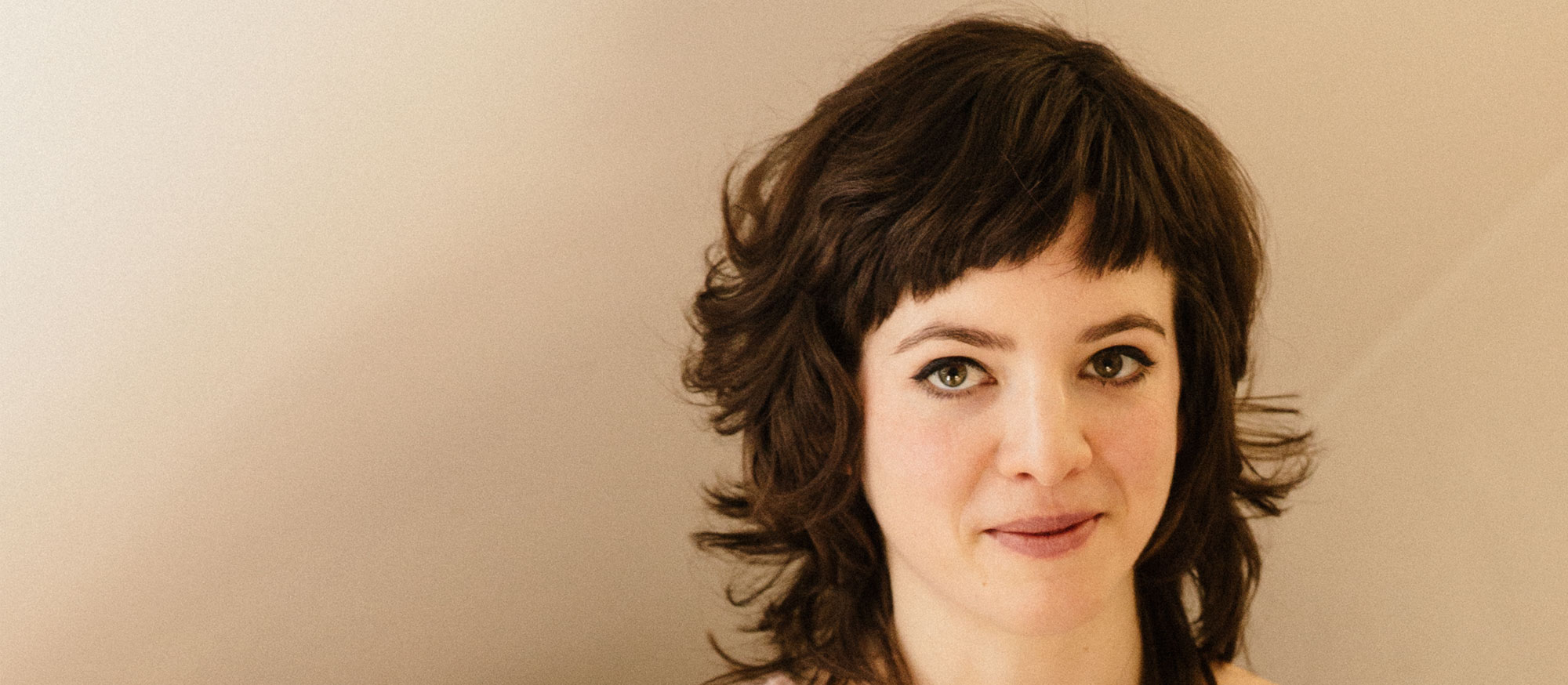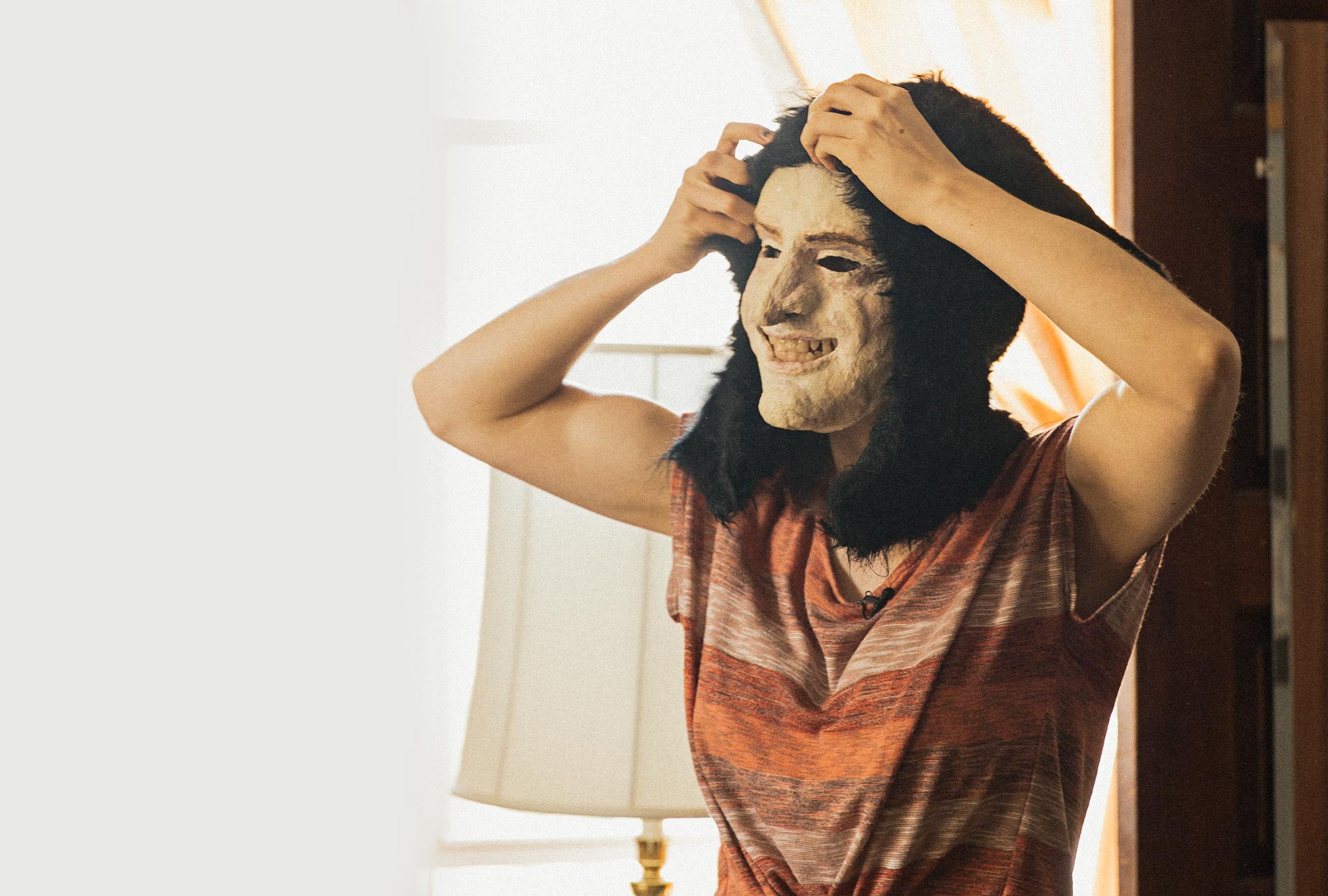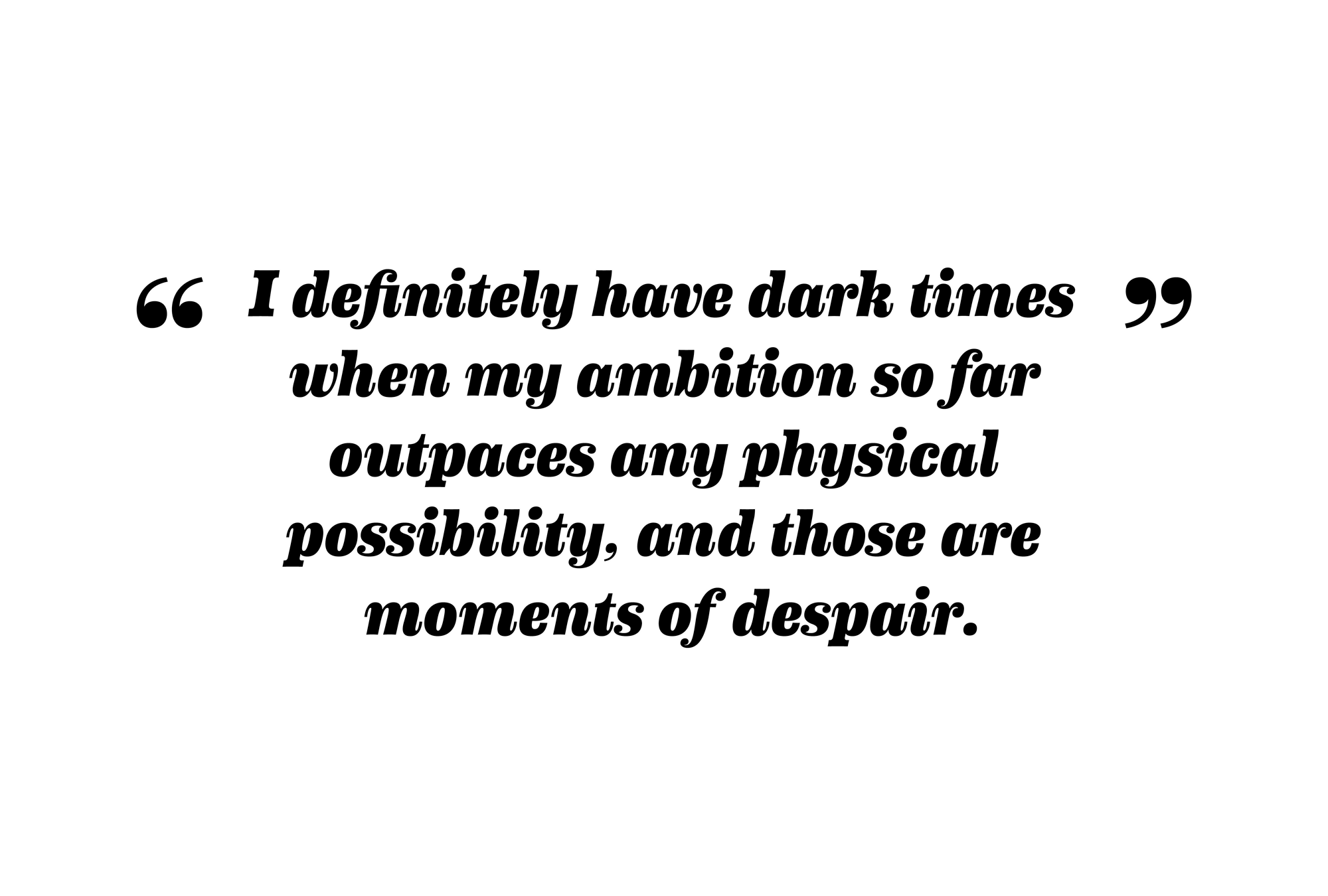


Lyra Hill, 26, is a comics artist, filmmaker, and the creator of the Brain Frame series at Constellation, where cartoonists perform their comics. The result: a new artistic medium.
Interview by Peter Margasak
Photographs by Ryan Lowry

Night City is a dream narrative that I wrote when I was still in school at SAIC. It’s a bit of a nightmare experience. This is a comic I translated into a performance at the second Brain Frame. The comic is only six pages long and there’s a character who appears at the beginning, Llama Man. It’s a character I use a lot in my work. He was the antagonist of my recurring childhood nightmare and now I see him as a psychopomp, like a guide from the world of the conscious to the unconscious.
When I was in school I made a costume of this character and for the performance I wore the costume. I’ve used this character in several subsequent performances. I use a monster voice, a wireless microphone, and a smoke machine whenever I do a Llama Man reading. My father taught me how to walk on stilts when I was young and he would build stilts for me, so I had a knowledge basis already.

The first time I read a comic performatively was a month before the first Brain Frame, at a poetry and prose reading series. And in doing so I started receiving all of these other ideas about other ways to translate my comics into performances. It was a time of great inspiration. I thought that it was the perfect opportunity to take advantage of these ideas and to see what my friends might do presented with the same options. For the first show [in July 2011] I thought: Who makes weird comics and is fun to watch? Who are my most theatrical friends? The show was such a hit that the people who lived at the space said, “Oh, you should keep doing this,” and I said, “OK, maybe I’ll do it every other month.” Five minutes later I heard them telling people that it was definitely going to be happening every other month.

At the beginning I had to recruit most of the readers. I spent a lot of time convincing people. Now—because those people have been to the show—they understand that there are no boundaries, and I want them to do weird stuff, but in the beginning it was difficult to convey my goals. A lot of the success has been due to the naivete of the readers. Cartoonists are not people who are onstage in front of their friends very often, so when the audience sees a clear novice, shaking and worried, there’s a warmth to the whole undertaking and a generosity of spirit. That generosity is still very potent in the show, but I see this new professionalism coming in as well, and I want to quit before that professionalism overtakes the naivete. I keep getting more and more applications, which is unfortunate because the show is booked until the end, which is in August 2014.

The aim of the show became clear to me as I was producing it. I was thinking back and I wondered if the only reason I wanted to do it was to have a venue to try my experiments. As the show went on I had more faith in the community. More and more people are making comics specifically for the show that are based in performance. It feels like a new medium, which is the most exciting thing. It’s so rewarding to see other people pick up on that and work in their own ways to advance the possibilities.
I have to keep expanding my own repertoire, and I have to keep bettering myself and my work. At this point I see that happening in longer performances, in full-length performances with a real theater setting, and I can’t do that at Brain Frame. Brain Frame is so much me working—things like writing e-mails, making posters, promoting, and getting equipment—and I want to use that time now for my own work.


I do wonder if I’m spreading myself too thin. I had a very hard time this past summer. Doing the anniversary Brain Frame was exhausting. It was production on a scale I had never approached before. In the midst of that I had a reading at the MCA the day before the anniversary show and I had a Kickstarter going for my film at the same time. As soon as Brain Frame was over I shot this incredibly ambitious 16-millimeter film in three weeks that, again, was on a scale that I had never approached before. I could not have done any of those things were it not for the enormous community of artists returning favors to me, sacrificing their time, energy, equipment, and money for my project. I burned out in August, after the movie. I had more things planned, but I had to cancel most of them. I needed time just to sit and clean my house. I definitely have dark times when my ambition so far outpaces any physical possibility, and those are moments of despair.

I’m inspired by my friends, and I’ve never known a town that works as hard as Chicago. I moved here from California and I learned that I was a big flake, so I’ve spent many years getting my shit together so that I could do the things that I’m doing now. I’m going to leave Chicago in a few years—I love it here, but I haven’t lived in enough places. I think about other cities and I wonder what it would be to start from the beginning again and how easy it would be to work towards something like I have here. It’s exciting, but it’s also daunting. ●























